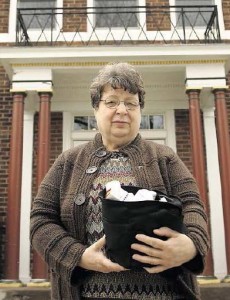$18 For A Baby Aspirin? Hospitals Hike Costs For Everyday Drugs For Some Patients
By Susan Jaffe | April 30, 2012 | KAISER HEALTH NEWS produced in collaboration with 
For the price Diane Zachor, 66, was charged for one pill to control high pressure during her 18 hour stay at St. Luke’s Hospital In Duluth, Min n., she could have bought a three-week supply. In South Florida, Pearl Beras, 85, of Boca Raton, Fla., said her hospital charged $71 for one blood pressure pill for which her neighborhood pharmacy charges 16 cents. Several other Medicare patients in Missouri were billed $18 for a single baby aspirin, said Ruth Dockins, a senior advocate at the Southeast Missouri Area Agency on Aging.
n., she could have bought a three-week supply. In South Florida, Pearl Beras, 85, of Boca Raton, Fla., said her hospital charged $71 for one blood pressure pill for which her neighborhood pharmacy charges 16 cents. Several other Medicare patients in Missouri were billed $18 for a single baby aspirin, said Ruth Dockins, a senior advocate at the Southeast Missouri Area Agency on Aging.
It’s no mistake: When Medicare patients are in hospitals for observation, they can be charged any amount for routine drugs to treat chronic conditions such as diabetes, high blood pressure or high cholesterol. Medicare doesn’t cover these type of medications and doesn’t require hospitals to tell patients when they are in observation status or that they will be responsible for paying any non-Medicare-covered services.
“I just couldn’t believe some of these prices they charge,” said Zachor (left). “It’s just atrocious.” [More from USA Today or from Kaiser Health News]
![]() WORLD REPORT Volume 380, Issue 9852, Pages 1458 – 1459, 27 October 2012
WORLD REPORT Volume 380, Issue 9852, Pages 1458 – 1459, 27 October 2012 better than others. Seniors have been reluctant to change plans, even if there are cheaper or better-rated alternatives, according to recent studies and seniors advocates. Beneficiaries also tend to stay with the same insurers: This year more than a third of those in Medicare Advantage plans, which provide medical and drug coverage, chose policies from just two insurers, UnitedHealthcare or Humana.
better than others. Seniors have been reluctant to change plans, even if there are cheaper or better-rated alternatives, according to recent studies and seniors advocates. Beneficiaries also tend to stay with the same insurers: This year more than a third of those in Medicare Advantage plans, which provide medical and drug coverage, chose policies from just two insurers, UnitedHealthcare or Humana.
 growing number of seniors who are shelling out thousands of dollars for follow-up nursing-home care.
growing number of seniors who are shelling out thousands of dollars for follow-up nursing-home care.




 n., she could have bought a three-week supply. In South Florida, Pearl Beras, 85, of Boca Raton, Fla., said her hospital charged $71 for one blood pressure pill for which her neighborhood pharmacy charges 16 cents. Several other Medicare patients in Missouri were billed $18 for a single baby aspirin, said Ruth Dockins, a senior advocate at the Southeast Missouri Area Agency on Aging.
n., she could have bought a three-week supply. In South Florida, Pearl Beras, 85, of Boca Raton, Fla., said her hospital charged $71 for one blood pressure pill for which her neighborhood pharmacy charges 16 cents. Several other Medicare patients in Missouri were billed $18 for a single baby aspirin, said Ruth Dockins, a senior advocate at the Southeast Missouri Area Agency on Aging.